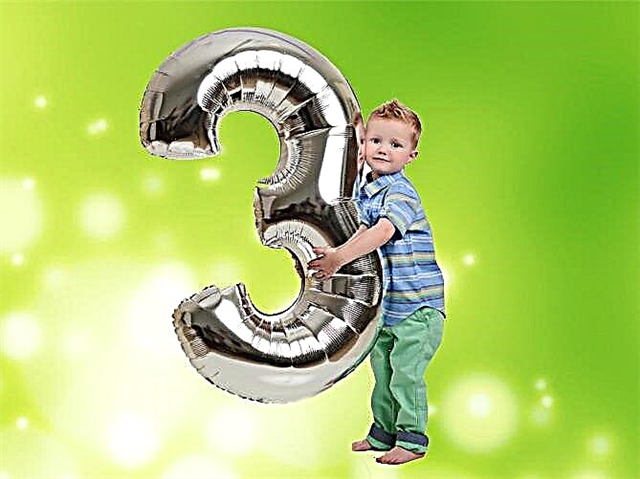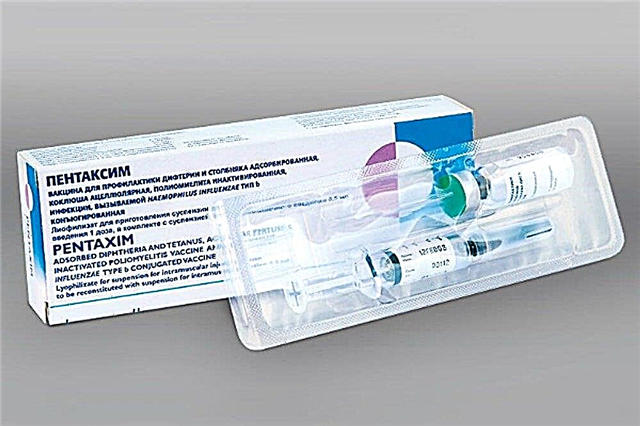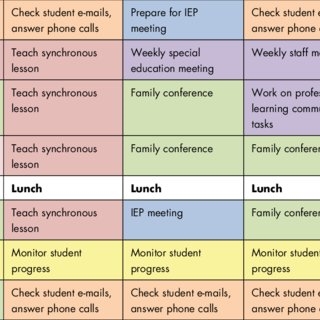
One of the common symptoms of various diseases in childhood is a dry cough. Usually it causes severe discomfort, so when it appears, parents try to help the baby in all available ways.

Cough reasons
A dry cough can appear in a child when:
- ARVI. The viruses trapped in the respiratory tract cause an inflammatory process in the mucous membrane and excite cough receptors. In this case, the defeat of the respiratory system can occur at different levels - from the pharynx to the alveoli.
- Inflammation of the vocal cords. A narrowing of the glottis contributes to the appearance of a cough, as a result of which the child has either a quiet or "barking" cough. This inflammation can be caused by viruses or bacterial infections, allergic reactions, toxic effects from fumes, or loud screaming.
- Respiratory tract infections of a bacterial nature. These include whooping cough, tuberculosis, diphtheria, and other diseases caused by bacteria and affecting the respiratory tract. The cough, as a symptom of tuberculosis, is usually prolonged and persistent. It appears at night and in the morning, and gradually passes from dry to wet, which practically does not stop. Cough with diphtheria occurs as a result of swelling of the throat and larynx. With whooping cough, a child suffers from bouts of dry cough, appearing as a result of irritation of the cough center in the brain, as well as due to an increase in the viscosity of sputum.
- Allergies. In such a situation, a cough appears due to exposure to the mucous membrane of the respiratory tract of allergens that cause an inflammatory process.
- Pleurisy. One of the symptoms of the inflammatory process in the pleura is a strong reflex cough, which causes the child severe discomfort.
- Gastroesophageal reflux. A feature of the cough caused by this reason is its appearance after eating. It usually occurs when a child has fallen asleep after eating, and the acidic contents of the stomach have entered the oral cavity, and then inhaled into the respiratory tract.
- Foreign body in the respiratory tract. Such a reflex cough occurs abruptly and is characterized by the absence of any other symptoms. Depending on the size of the foreign object, this cough can be very severe.
- Worm infestation. Some parasite larvae pass through the baby's lungs and can cause a mild but persistent dry cough.

Much less often, a dry cough is one of the symptoms of a tumor process in the lungs, heart disease, inflammation of the lymph nodes in the area of the bronchial tree or aortic aneurysm.
It is also worth noting that in infants in the morning, a physiological cough may appear, during which the airways are cleared of phlegm. In this case, there will be no other symptoms of malaise.
Why is it dangerous?
A cough is by its nature a protective reflex and can occur in a healthy child, but a prolonged dry cough most likely indicates that the baby has some kind of problems with the respiratory system. Sometimes these are diseases that should be treated as soon as possible. So if a lingering cough has been tormenting a child for more than a day, you must definitely go to the doctor with a crumb.

Features:
Cough at night
For many children, coughing worsens at night because sputum is less efficient when lying down. In addition, mucus flowing from the nasopharynx can also provoke a cough. In addition, if the child's nasal breathing is difficult, the baby will breathe through his mouth in a dream, which will lead to additional drying out of the mucous membranes and an increase in dry cough.
Barking cough
Barking is called a strong cough, similar to a dog's barking.
This rough cough, in which whistling and wheezing can be heard, is common with whooping cough. Other causes of such a cough are laryngitis, allergies, nervous disorders, dry air in the room, a foreign body in the larynx.
A barking cough significantly affects the well-being of the child, intensifies at night and, as a rule, occurs paroxysmal. During such a cough, the child may even lose his voice.
Allergic cough
A similar cough can occur for no apparent reason, periodically disappearing and reappearing. Such a cough is often associated with the flowering period, as well as with the effect on the child's body of household allergens. He is often accompanied by a runny nose and watery eyes, and the temperature with such a cough, as a rule, does not rise.
Temperature as a sign of illness
Most often, the appearance of a dry cough is combined with an increased body temperature. Such symptoms are typical for acute respiratory infections. The child may also have weakness and lethargy, poor appetite, runny nose, moodiness and other manifestations of the disease. As a rule, after a while the nature of the cough changes - it becomes wet.

Child care rules
- To prevent dry room air from provoking additional coughing fits, it should be humidified. Use a special appliance, wet towels or containers of water.
- Maintain optimal temperature conditions. Let the temperature in the room where the child is with a cough is about 20-22 degrees.
- Eliminate any irritant effect on the respiratory tract. The child should not get any chemical odors or tobacco smoke.
- Take care of a special drinking regime. Give a coughing child more often warm alkaline drinks, such as still water, tea, or milk.
- It is better to make food during the illness sparing. Do not force your child to eat if he refuses. On the menu, low-calorie and light dishes are preferred, for example, fruit puree, jelly, mashed potatoes.

Medicines
When using drugs in the treatment of dry cough in children, one should remember the following nuances:
- In childhood, there is a high risk of exceeding the dose. For this reason, the use of medicines to eliminate cough in babies under 2 years old should be monitored by a doctor, accurately selecting the dosage taking into account the age and weight of the child.
- All drugs have side effects. The medicine can be safe for adults and cause drowsiness, dizziness, allergies, and other problems in babies.
- Children under two years of age do not know how to cough up to produce phlegm, so they try to prescribe expectorant drugs as rarely as possible.
- Babies are more sensitive to various chemical compounds, so the appointment of any medication should be combined with plenty of drinking.

In the treatment of dry cough in childhood, the following groups of drugs are used:
- Drugs that inhibit the cough reflex. They affect the baby's brain.
- Local preparations. They moisturize mucous membranes and relieve irritation.
- Drugs that reduce the viscosity of sputum, thereby improving its discharge.
- Antibiotics and antimicrobials. They are prescribed in situations where a cough is a symptom of a bacterial infection.
- Combined medicines. In addition to coughing, they affect other symptoms of the disease, for example, lowering the temperature.
Effective drugs for treatment
Most often, syrups are used to treat dry cough in childhood. The choice of a suitable drug is primarily influenced by the age of the child.
For babies
Under the age of one year, children are often assigned Prospan and Gedelix. These are mucolytics based on ivy leaf extract. Syrups containing ambroxol, such as Ambrobene or Lazolvan, can also be prescribed for babies under 12 months old. The use of marshmallow-based syrups is also allowed at this age, and Linkas can be given to six-month-old babies.
For children under 3 years old
One-year-old children are prescribed Tussamag (a preparation based on thyme extract) for coughing, Doctor Theiss plantain syrup, as well as a multicomponent herbal preparation Travisil. Two year olds can take Herbion syrups (plantain or ivy), marshmallow syrups and ambroxol syrups. The back and chest of the child can be lubricated with Pulmex Baby.
For children over 3 years old
From the age of three, the use of Doctor Mom syrup is allowed. You can also give all the syrups used in the treatment of younger children.

Folk remedies at home
Quite often, with a dry cough, parents are limited to alternative methods of treatment, since they are available and can be used even in children under one year old.
The most common recommendations are:
- Gargle with water and salt (sometimes iodine and soda are added to it) or herbal decoctions.
- Breathe steam.
- Drink tea with breast collection, rosehip broth, cranberry juice.
- Do various warming manipulations.

Here are some of the remedies that are commonly used for dry cough in childhood from the arsenal of alternative treatments:
- Bring 500 ml of milk to a boil and cool. Stir the yolk, a teaspoon of honey and art. a spoonful of cream. Give your child warm up to 5 times a day.
- Squeeze the juice out of a medium lemon, stir with a spoonful of honey. Give your child one spoonful.
- From a medium-sized black radish, cut out the pulp and fill the radish with honey. After a day, drain the juice with honey and give the child a tablespoon three times a day. You can also squeeze the juice out of the radish and mix it with a lot of sugar.
- Brew two teaspoons of elecampane roots with a glass of boiling water, divide into three parts and give to the child during the day.
- Mix sugar with water and cook until brown. Give this caramel syrup to your child.
- Peel a ripe banana and crush it with a spoon, add boiling water and stir well. Serve 2 scoops up to 10 times a day.

Compresses
The warming compress helps to relieve dry coughs by increasing the local circulation. Before putting a compress on a child, you should definitely consult a doctor. For compresses, you can use boiled potatoes, a mixture of water, honey and apple cider vinegar, heated sunflower oil, lard. When the compress has been removed from the child's body, it is important to immediately dress him warmly.
Inhalation
Such procedures help to soften dry coughs and moisturize the mucous membranes. Usually they use special devices called nebulizers. At home, a child can simply breathe over the steam that rises from brewed chamomile, boiled potatoes, and sage broth. Inhalation is permissible only in the absence of fever.
Should you use banks?
In the past, cans were often used as a remedy for colds and coughs, but nowadays their use is not recommended. This is not only ineffective, but also a skin traumatic procedure.
Komarovsky's opinion
A well-known pediatrician calls coughing a useful reflex that clears the lungs of mucus, bacteria and viruses accumulated in them. He recommends fighting dry coughs by drinking and keeping your baby cool.
Komarovsky considers it unacceptable to give children medicines that suppress coughs, if they have not been prescribed by a doctor. He focuses on the fact that such drugs are permissible only for whooping cough and must be prescribed by a pediatrician. In other cases, a popular doctor advises to limit yourself to medications that reduce the thickness of sputum and cause the bronchi to contract for its excretion.

Komarovsky considers mukaltin, lazolvan, potassium iodide, ACC and bromhexine to be effective and harmless drugs that help with coughing. The doctor advises keeping them in his medicine cabinet, but consult your doctor about the appropriateness of their use and dosage in each case of cough.
In the following video, Dr. Komarovsky gives advice on treating dry feces.
Tips
- If you notice that your child is coughing often, do not hesitate to contact the pediatrician. It is better to make sure that the cough is physiological than to waste time in treatment. It is especially important to consult a specialist in time if a child suffers from a debilitating cough.
- When buying any medicine for a child with a cough, read the instructions carefully. Before giving the syrup to a baby, it is important to make sure that it is suitable for your age, and the dosage indicated by the doctor matches the manufacturer's recommendations.
- Remember that your child needs your care and love. Treat the crumbs' illness with understanding, even if the baby is naughty or refuses treatment.



